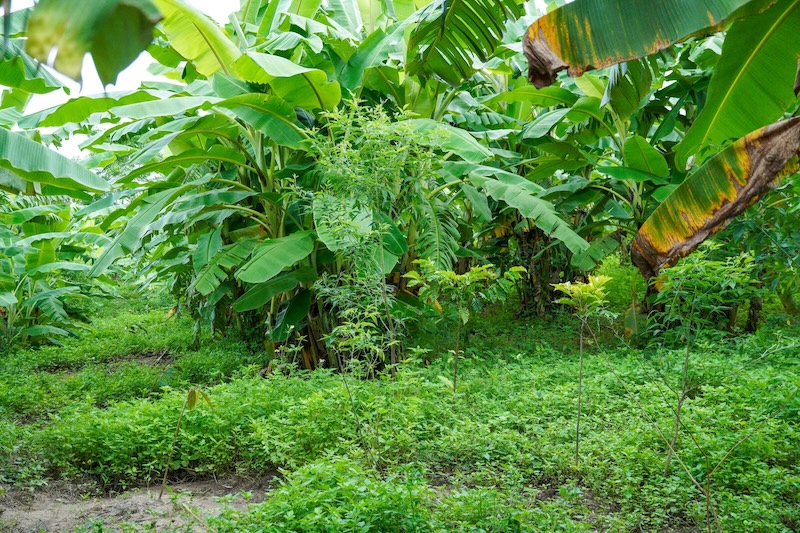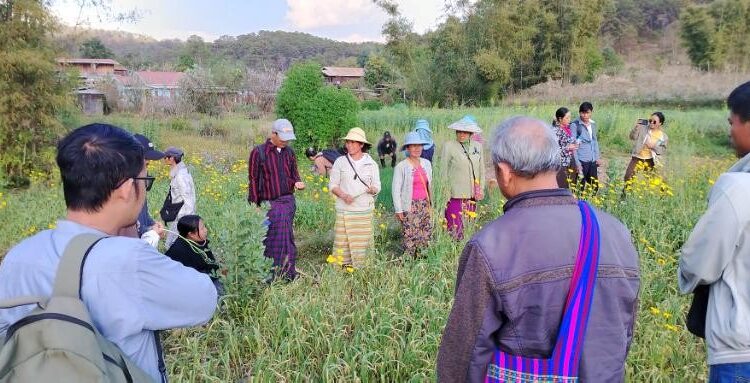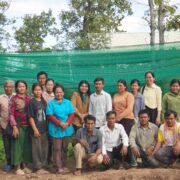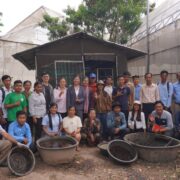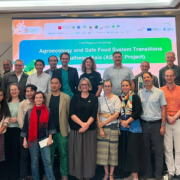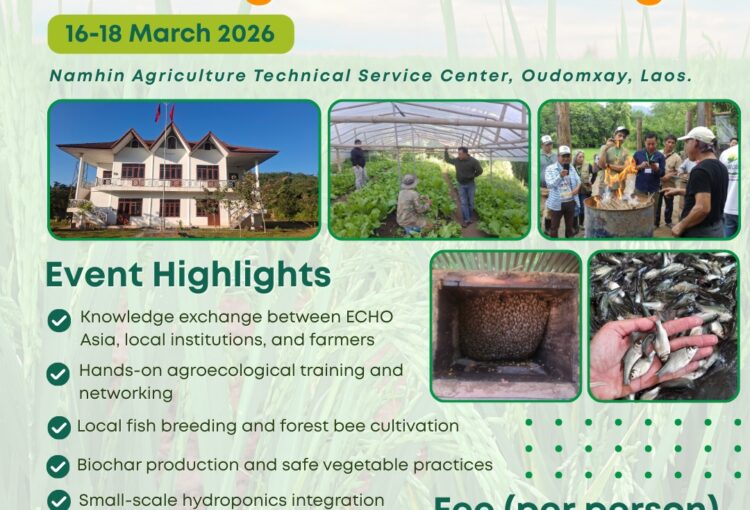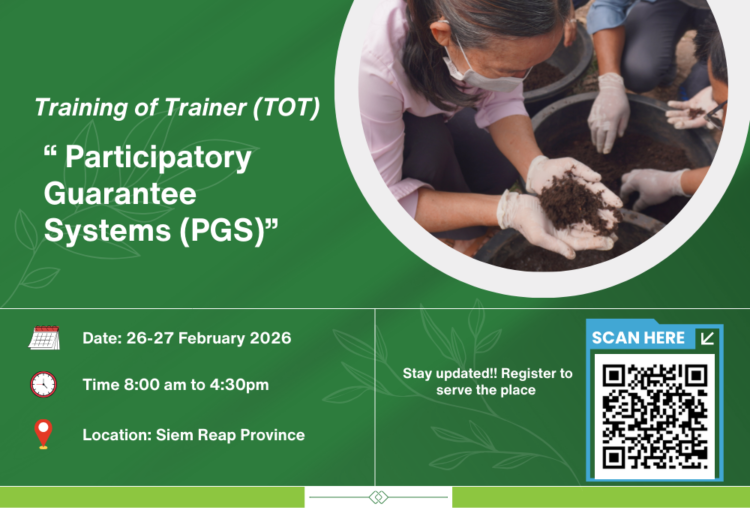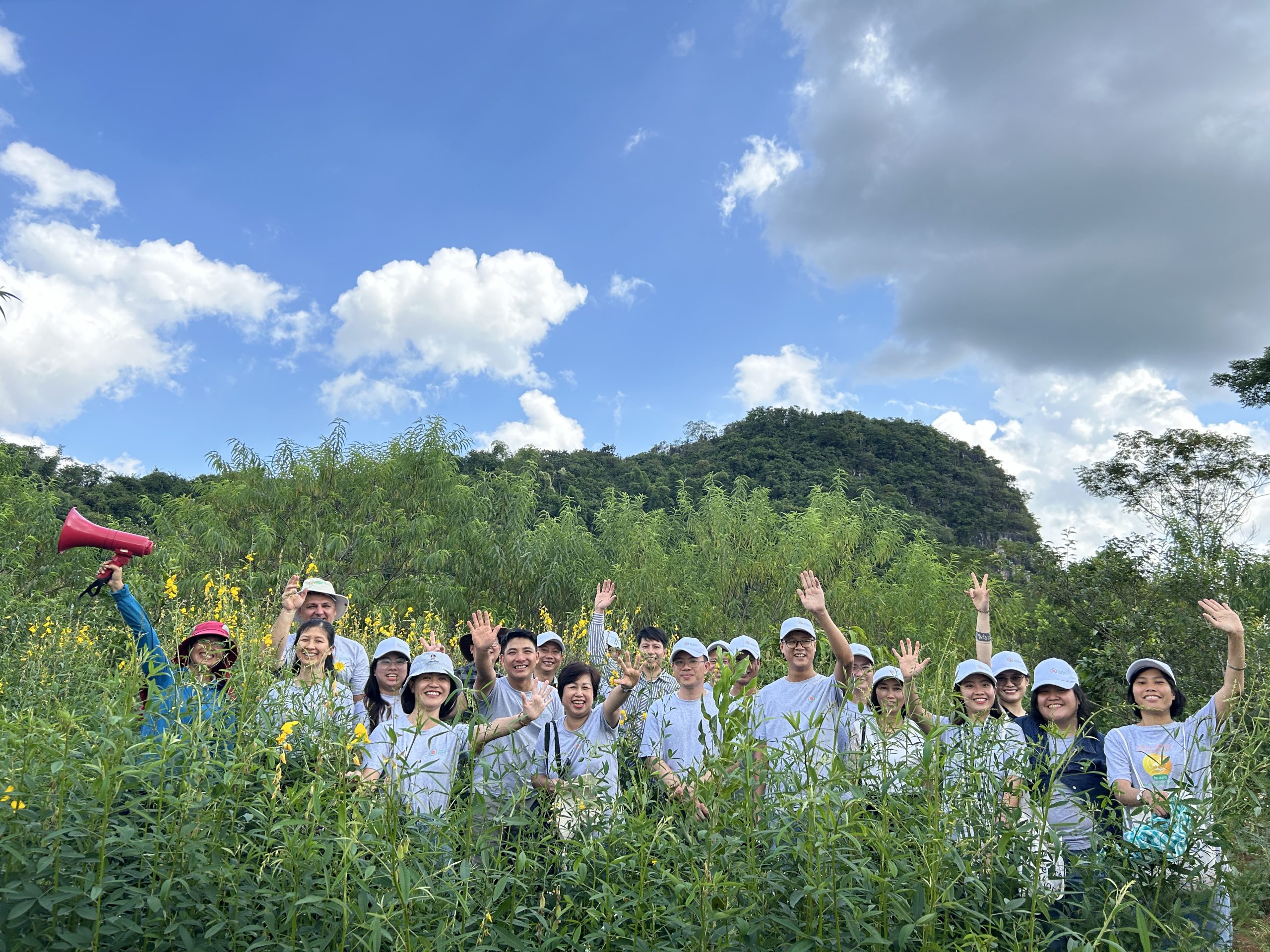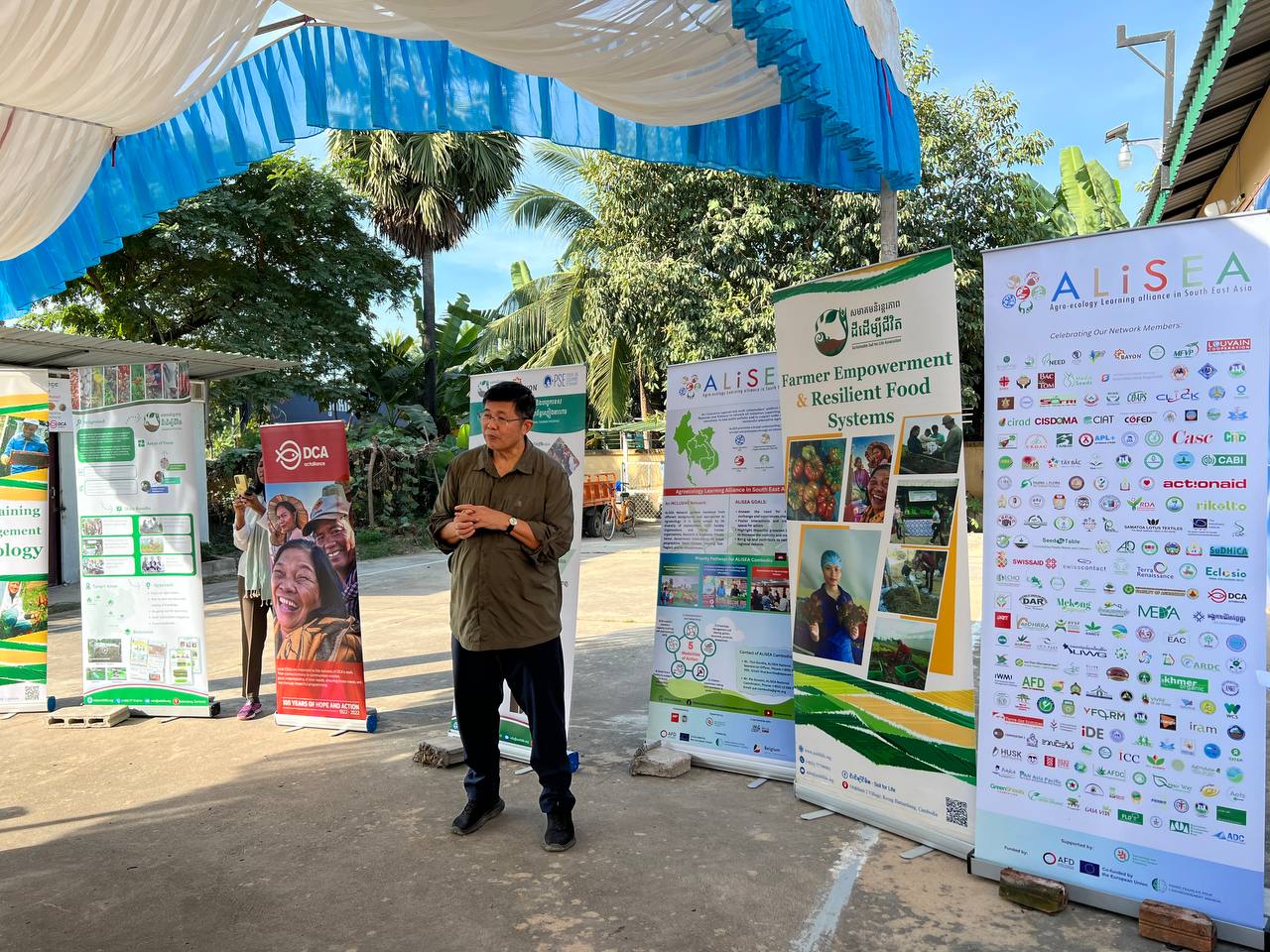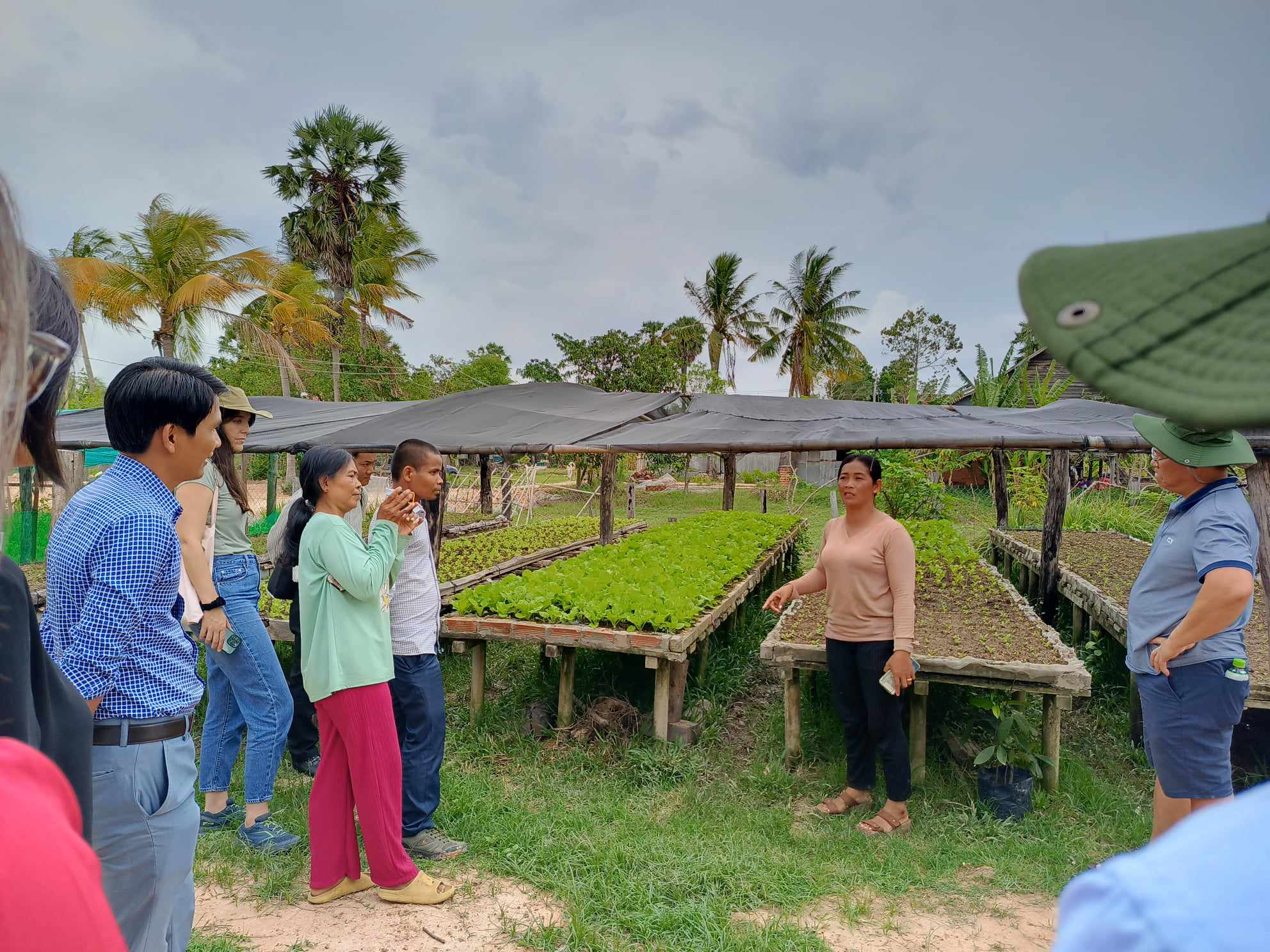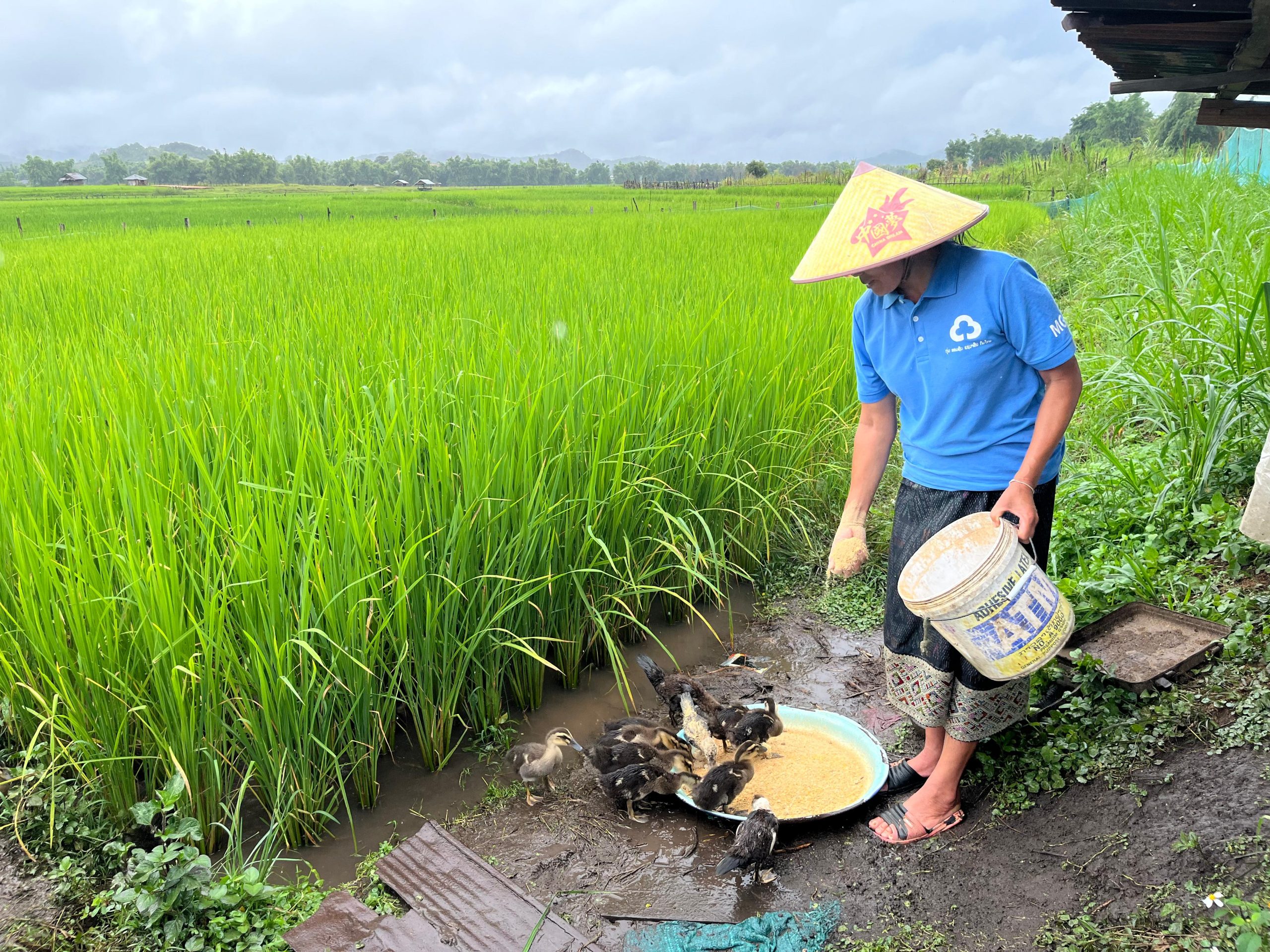Officer
Dong Thap Vietnam
Officer
Hanoi Vietnam
You organize events ? Or you are looking to employ someone in AgroEcology ? Let us know and we will display it here.
Trichoderma as bio-control agent
This video demonstrates how to use Trichoderma as a bio-control agent to protect banana plants from Fusarium wilt (Panama disease),.…
Making rhizobium bio-fertilizer at home
This video guides how to produce Rhizobium bio-fertilizer at home using legume root nodules,. Rhizobium bacteria are essential for capturing…
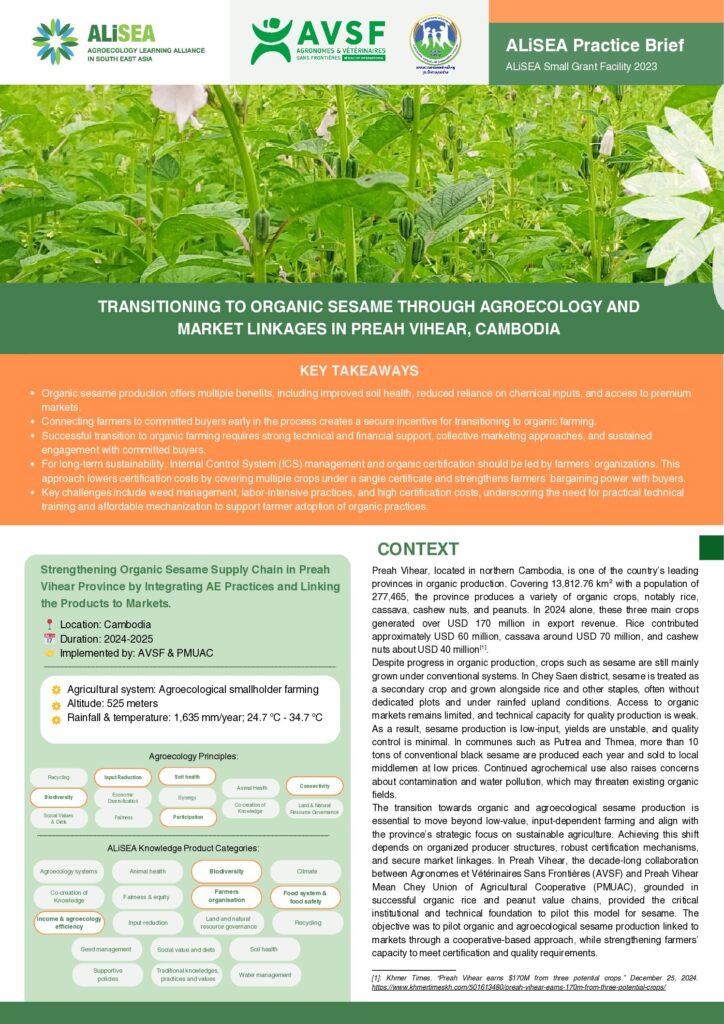
Transitioning to Organic Sesame through Agroecology and Market Linkages in Preah Vihear, Cambodia
This practice brief presents a pilot initiative supporting smallholder farmers in Preah Vihear to transition from conventional to organic sesame…
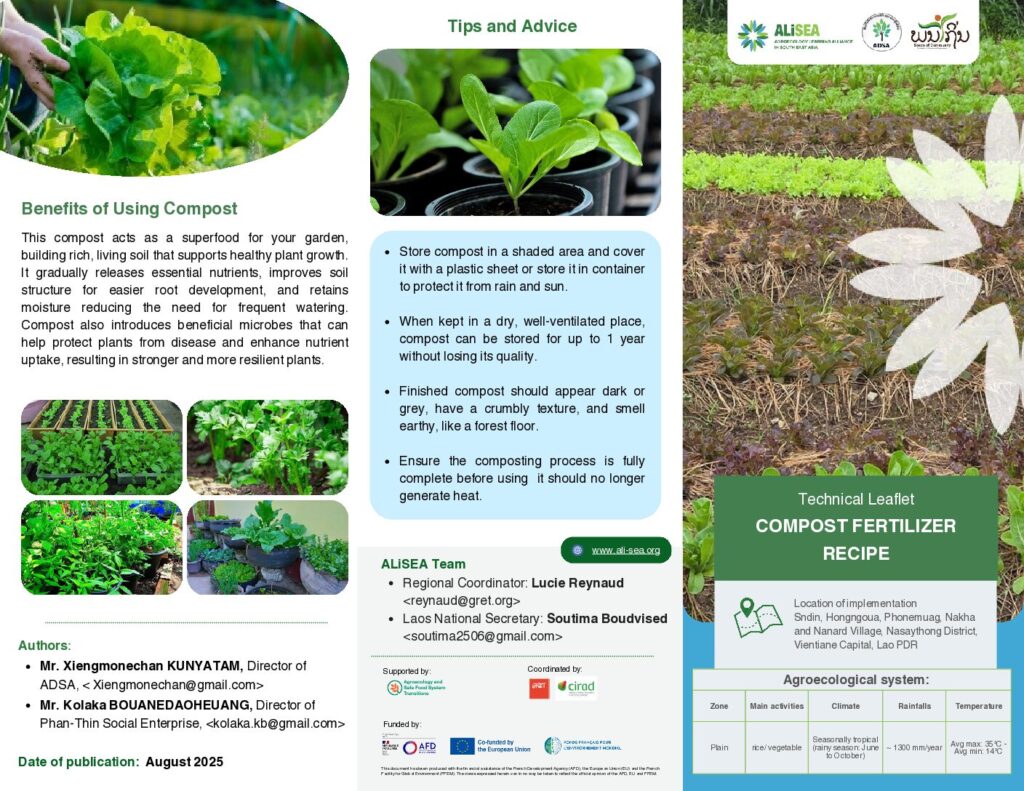
Technical Leaflet: Compost Fertilizer Recipe
This compost acts as a superfood for your garden, building rich, living soil that supports healthy plant growth. It gradually…
Our latest videos
